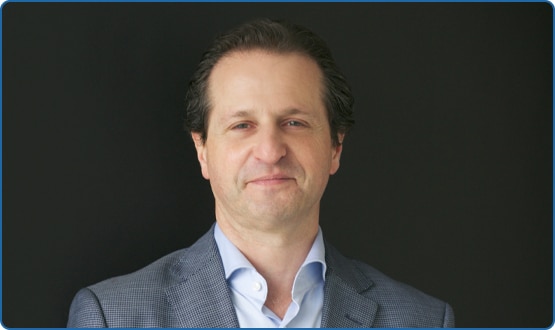Nuance says AI and NLP the route to address clinician burn-out
- 12 June 2023

Overworked clinicians spend too much valuable time typing up notes. AI and Natural Language Processing could capture their conversations with patients and give them more time to care. By Jon Hoeksma
Healthcare systems and healthcare professionals around the world are under huge stresses, exacerbated by the Covid-19 pandemic.
Of particular concern is clinician burn-out, with healthcare professionals overwhelmed by the work pressures they face, day in and day out. How can technology reduce burdens on clinicians rather than add to them?
One area that holds huge potential is conversational AI, using Natural Language Processing (NLP) and AI to capture the conversation in the consultation room and generate a structured, coded note ready to be checked and entered straight into the patient record.
Huge productivity benefits
At Rewired23 in March Tim Ferris, director of digital transformation at NHS England, highlighted conversational AI as having the potential to achieve huge productivity benefits, if adopted across the NHS.
Speaking at a recent Nuance international partner event, Peter Durlach, chief strategy officer, sketched a picture of the pressures on healthcare systems internationally.
“Care providers are not in good shape. The French government has just taken on £10bn of debt over three years. Some 60% of German hospitals are in financial loss, up from 41% in 2021. And two-thirds of UK ICSs are in deficit,” he said.
Durlach said AI and Natural Language Processing (NLP) promised to make voice and conversation “the new User Interface” in health, avoiding the need for scarce clinicians to be typists. “With AI, and GPT in particular, the power of conversational interfaces has exploded.”
Speaking about Nuance’s Dragon Ambient Experience (DAX) product, expected to launch internationally later this year, Durlach said: “Doctors just want to talk with their patient, and with ambient AI that’s exactly what they can do.”
He added: “By moving to Azure cloud-based services you gain a pathway to AI capabilities and can seamlessly embed AI into the workflow.”
In a video case study presentation Josh Wilda, CIO at University Michigan Health West, described DAX in action: “DAX grabs conversations in the room between the physician and patient and then uses AI to then craft a progress note, including clinical coding. Crucially, it restores the intimacy of the relationship between the clinician and the patient.”

“With AI and GPT, the power of conversational interfaces has exploded”
Peter Durlach, chief strategy officer, Nuance
Durlach said that the ambient nature of the technology is what transforms the consultation. Once the patient has given their consent, the technology generating the structured consultation record can be placed in the background.
He said the key to making ambient NLP unobtrusive is that the technology and services are all cloud-based in Azure, giving rapid access to evolving technology, reliably and securely. “This technology is still in its infancy and is moving very quickly. The cloud gives you the way to access that innovation and build applications upon it.”
Nuance claim that the DAX system can save seven minutes per patient visit, giving physicians time back. That time, it says, equates to better, less pressured, patient consultations, and reduced stress.
Simon Hill, VP EMEA Nuance added: “If you look across Europe you see high levels of physician burnout, exacerbated by EPRs. In the US the position is even worse with clinicians estimated to have to make 4,000 clicks a day, and every hour with a patient generating two hours of noting.”
UK can avoid mistakes
Durlach stressed that the UK was different to the US, with less documentation burden. By starting later on its EPR journey, the UK could learn from and avoid the mistakes made in the US where clinician burn-out, exacerbated by EMRs, has become a huge issue and is causing clinicians to leave the healthcare professions.
The Nuance strategy boss said that because the technology is still so new it is naturally creating fears and anxieties in health, and regulators, professionals and industry will have to work hard to put appropriate frameworks and safeguards in place.
But the biggest anxiety, that AI will replace doctors and nurses, is unfounded he said. Instead, AI will provide a suite of tools and services that help physicians work more effectively and make better decisions, more safely.
“When you go to see a doctor, you have no idea how good they are, or how many patients they have seen already that day. Would you not want them to be supported with the best tools available? That’s how I think AI will help, supporting clinicians to consistently perform at the top of their license.”
He emphasised that we are at the early stage of this journey. “But we are already seeing that AI has real potential to support clinicians. AI will undoubtedly have a huge impact in healthcare.”
Launched in the US in 2020, with an Express version launched earlier this year, DAX is not yet available internationally. Durlach told Digital Health News an international launch will come soon.




1 Comments
I started to use speech recognition in the 1990s when faster processors made it possible for software like Dragon Dictate to become more widely used. However, at that time you had to “train the software to recognise your voice” and you also had to dictate in an area where background noise was almosr eliminated. It has taken 30 years to develop software that is now functional in a medical setting, but at a high cost. In April 2021, In March 2022, Microsoft eventually bought Nuance Communications reportedly as an all-cash transaction of $19.7 billion, including company debt, or $56 per share.
In the above report, “Nuance claim that the DAX system can save seven minutes per patient visit, giving physicians time back” but it is still in its infancy and the cost of moving it into full functionality will be huge. The questions are 1) How long will it take? and 2) Can Medicine (i.e. patients, Integrated Care Systems (ICS’s) and healthcare insurers afford it?)
Comments are closed.